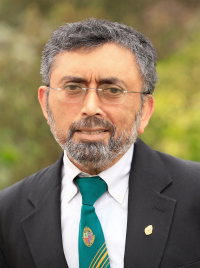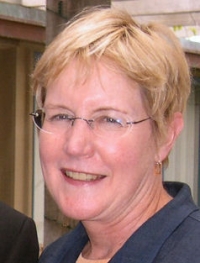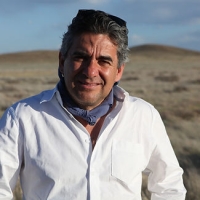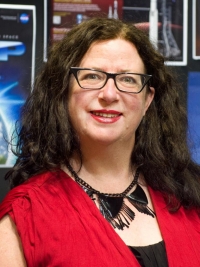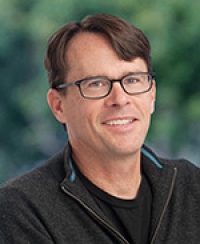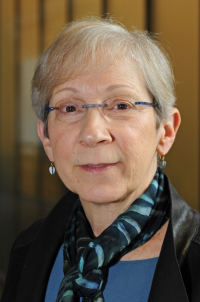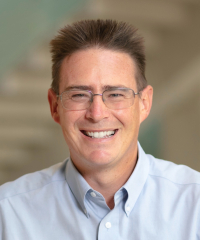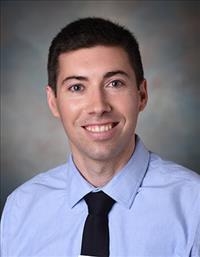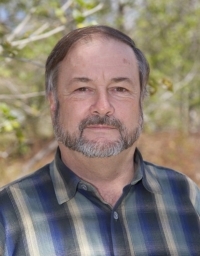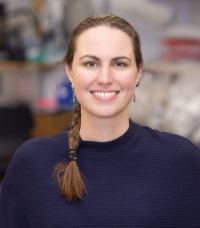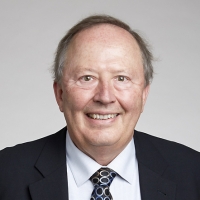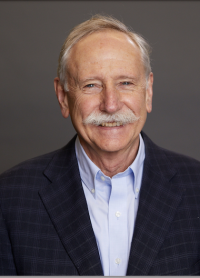Humans: The Planet-Altering Apes
Biographical Sketches: Co-Chairs
UC San Diego School of Medicine
Ajit Varki is Distinguished Professor of Medicine and Cellular & Molecular Medicine, Founding Co-Director of CARTA, Founding Director of the Glycobiology Research and Training Center (GRTC) at UC San Diego, and Adjunct Professor at the Salk Institute. He received basic training in physiology, medicine, biology, and biochemistry at the Christian Medical College, Vellore, The University of Nebraska, and Washington University in St. Louis. He also has formal training and board certification in internal medicine, hematology, and oncology. Dr. Varki is Executive Editor of Essentials of Glycobiology (Cold Spring Harbor Press) and is recipient of a MERIT award from the NIH, and an American Cancer Society Faculty Research Award. Honorific elections include the American Academy of Arts and Sciences, the National Academy of Medicine, the American Society for Clinical Investigation, and the Association of American Physicians. He is also recipient of the three highest honors in his field, the Karl Meyer Award of the Society for Glycobiology, the International Glycoconjugate Organization Award and the Rosalind Kornfeld Award for Lifetime Achievement in Glycobiology. He is recognized for creating the first major open access research journal (J. Clin. Invest., 1996) as well as the first major open access textbook (Essentials of Glycobiology, 2009). He was honored with the Old Cottonian of Eminence Award at the 150th Anniversary of Bishop Cotton Boys School, Bangalore, India, (2015) as well as a Distinguished Faculty Medal and Oration at his medical school alma mater, CMC, Vellore. Significant past appointments include: co-head, UC San Diego Division of Hematology-Oncology; President of the Society for Glycobiology; Editor-in-chief of the Journal of Clinical Investigation; Interim director of the UC San Diego Cancer Center, President of the American Society for Clinical Investigation, and UC San Diego Associate Dean for Physician-Scientist Training. Dr. Varki's research interests are focused on a family of cell surface sugars called sialic acids, and their roles in biology, evolution and disease. Currently active projects are relevant to the roles of sialic acids in microbial infectivity, the regulation of the immune response, the progression and spread of tumors, aging, and unique aspects of human evolution. His group is particularly intrigued to find multiple interrelated differences in sialic acid biology between humans and our closest evolutionary cousins, the "great apes". These differences are a signature of the events that occurred during the last few million years of human evolution, and appear to be relevant to understanding several aspects of the current human condition, both in health and disease. Dr. Varki’s book, Denial (Twelve, Hachette Books 2013), explores a novel "Mind Over Reality Transition (MORT) theory that denying reality and personal mortality was a key step in allowing the emergence of a full theory of mind, and in the origin of our species.
UC San Diego
Margaret Schoeninger is Distinguished Professor Emerita of Anthropology at UC San Diego, a Research Archaeologist in the Glenn Black Laboratory of Archaeology at Indiana University, and Emerita Co-Director of CARTA. She has done fieldwork in North America, Mexico, Pakistan, India, Kenya, and Tanzania as well as laboratory research on carbon, nitrogen, and oxygen stable isotope ratio analysis in biological tissues and food component analysis of traditional foods. Her major interest is in the evolution of human diet particularly as it informs our understanding of the appearance and evolution of the human lineage.
Biographical Sketches: Speakers
Universidad Nacional Autónoma de México (UNAM)
Dr. Gerardo Ceballos is Senior Researcher at the Institute of Ecology of the UNAM, an institution where he has been employed since 1989. Born in 1958, he received his degree in biology at the Autonomous Metropolitan University. After graduate studies at the University of Wales, he received his doctorate at the University of Arizona (Tucson). His academic interests include animal ecology, biogeography, and conservation of nature. He has directed 19 thesis projects, 13 master's, and 5 PhDs. He is a member of several scientific societies including the Mexican Academy of Sciences, the American Association for Ecology, and the Mexican Association of Mammalogy. He is a member of the National System of Researchers (Level 3). He has received 22 awards in his scientific career, most notably the Rolex Award (Honorable Mention, Switzerland, 1990), the Distinguished Service Award from the Academy of the Society of Biological Conservation (United States, 2005), the National Ecological Merit Award (Mexico, 2005), a Guggenheim Fellowship (United States, 2005), the Whitley Award for Nature Conservation (Britain, 2006), the VW Planeta Award Por Amor (Mexico, 2008), the Merriam Award from the American Society of Mammalogist (United States, 2010), and the Special Distinction Environmental Merit Bicentennial from the Government of the State of Mexico (Mexico, 2010). He has published more than 3000 scientific and popular articles and 28 books . He has published in top scientific journals around the world including Science, Proceedings of the National Academy of Sciences, PlosOne, Ecology, Ecological Applications, and Conservation Biology. Some of his books include: The Endangered Birds of Mexico, Endangered Animals of Mexico, Wild Mammals of Mexico, Biodiversity, Ecosystems and Conservation in Northern Mexico, Mexican Nature, and Wildlife Mexican. (Source: The Breakthrough Institute, Gerardo Ceballos Profile)
Flinders University
Dr Alice Gorman is an internationally recognised leader in the field of space archaeology. Her research on space exploration has been featured in National Geographic, New Scientist, and Archaeology magazine. She is a faculty member of the International Space University's Southern Hemisphere Space Program in Adelaide.
Her book Dr Space Junk vs the Universe: Archaeology and the Future (NewSouth Publishing, MIT Press, 2019) won the NIB Award People's Choice and the John Mulvaney Book Award, as well as being shortlisted for the NSW and Queensland Premier's Awards and the Adelaide Festival Awards.
She has worked extensively in Indigenous heritage management, providing advice for mining industry, urban development, government departments, local councils and Native Title groups in NSW, WA, SA and Queensland. She is also a specialist in stone tool analysis, and the Aboriginal use of bottle glass after European settlement.
With Co-PI Associate Professor Justin Walsh, she directs the International Space Station Archaeological Project (ISSAP), which uses archaeological methods to study how humans use material culture to adapt to the unique microgravity environment of Low Earth Orbit.
Alice is a member of the Advisory Council of the Space Industry Association of Australia, the American Institute of Aeronautics and Astronautics, the Global Expert Group on Sustainable Lunar Activities, and the Australian Institute of Aboriginal and Torres Strait Islander Studies. She is also President of the Anthropological Society of South Australia.
Twitter: @drspacejunk
University of California at San Diego
David Holway received a B.A. in zoology from UC Berkeley and a Ph.D in biology from the University of Utah. He joined the UC San Diego faculty in 2001 and has served as campus director of the UC Natural Reserve System and chair of the section of Ecology, Behavior & Evolution.
Washington State University College of Veterinary Medicine
Patricia Hunt is a Regents Professor in the School of Molecular Biosciences at Washington State University, Pullman, WA. Her research focuses on understanding the high incidence of chromosomally abnormal eggs produced by human females and why the incidence is so strongly impacted by advancing maternal age. She remains fascinated by this complex problem, but the accidental exposure of her mice to bisphenol A (BPA) in 1998 diverted her attention to the effects of endocrine disrupting chemicals. These chemicals have become common environmental contaminants that not only represent a threat to our fertility but also a growing concern to the health of the planet and the species it supports. Dr. Hunt is particularly interested in science communication and is dedicated to ensuring that future trainees not only will be outstanding scientists but easily able to communicate their findings to the general public.
University of California, San Diego
Rob Knight is the Director of the Center for Microbiome Innovation at UC San Diego, where he is a Professor of Pediatrics, Bioengineering, and Computer Science & Engineering. He co-founded the Earth Microbiome Project, and the American Gut Project, which is among the largest crowdfunded science projects of any kind to date. He has spoken at TED, written three books and over 700 scientific articles, and in 2017 he won the Massry Prize, often considered a predictor of the Nobel. He was honored with the 2019 NIH Director’s Pioneer Award for his microbiome research. His work combines microbiology, DNA sequencing, ecology and computer science to understand the vast numbers of microbes that inhabit our bodies and our planet.
Dr. Knight can be followed on Twitter (@knightlabnews) or on his website http://knightlab.ucsd.edu/.
Pennsylvania State University
Asher Rosinger, PhD MPH is a human biologist and interdisciplinary scientist. Dr Rosinger is the Ann Atherton Hertzler Early Career Professor in Global Health at the Pennsylvania State University, where he founded and directs the Water, Health, and Nutrition Laboratory. His overall research program is designed to understand the range of human variation in water intake and how this relates to adaptation, environmental changes, water insecurity, and health, hydration, and disease risk. He examines how humans respond to changing nutritional and economic environments through water and dietary intake and the significance of mismatches in these relationships for short- and long-term health, nutrition, and disease. In particular, he examines these issues in the Bolivian Amazon among indigenous Tsimane’ forager-horticulturalists, in Kenya among Daasanach agro-pastoralists, and in the US using complex survey data from the National Health and Nutrition Examination Surveys (NHANES). He has published more than 60 peer-review articles and book chapters, as well as the July 2021 Scientific American cover story on the evolution of human water needs, "Human Evolution Led to an Extreme Thirst for Water."
Twitter: @asher_rosinger
San Diego Zoo Wildlife Alliance
Oliver A. Ryder is the Kleberg Endowed Director of Conservation Genetics at the San Diego Zoo Wildlife Alliance. He is an adjunct professor in the Section of Evolution, Behavior and Ecology of the Division of Biology at UCSD and in the Department of Biology at San Diego State University. For many years he directed the development of the Frozen Zoo®, a unique biological resource collection, founded by the late CARTA Member Kurt Benirschke.
He oversees conservation research and strategic initiatives in biodiversity characterization, conservation, and genetic rescue. His research interests include chromosomal evolution, comparative genomic studies, especially as they apply to conservation efforts, the genetic basis for mammalian adaptation, and strategic planning for conservation of biological diversity focused on intraspecific genetic variation, and genetic rescue using cellular technologies. He serves on numerous consultative committees for conservation of a variety of animal taxa (including apes), conservation breeding efforts, genetic resource banking, and zoological systematics for national and international wildlife agencies and NGO's. He is an AAAS Fellow, past President and Executive Vice President of the American Genetic Association, and one of three co-founders of the Genome10K initiative.
He has contributed key studies relevant to conservation management efforts for gorillas, California condors, African rhinos, Przewalski’s horses, Anegada iguanas, and numerous other species. He has been a leader in developing studies that link conservation efforts for small managed populations, such as are held in zoos, with larger landscape scale efforts for wild populations. His TEDx talk on YouTube introduced a major current project on genetic rescue of the northern white rhinoceros.
Twitter: @frozenzoo
Yale University
Jessica Thompson specializes in human evolution, and especially those aspects that can be revealed through the analysis of ancient animal bones found at archaeological sites (zooarchaeology). She leads the Malawi Ancient Lifeways and Peoples Project in Malawi, central Africa, where she has maintained a field site since 2009. This multidisciplinary work combines archaeological science, evolutionary theory, and hunter-gatherer ethnography to develop and interpret the first cultural and paleoenvironmental chronologies in the region that span the transition from the last Ice Age. Her other research, based on collaborative work in Ethiopia, targets the opposite end of the archaeological record, at its origin in the Pliocene. Thompson is PI of the Yale Paleoarchaeology Laboratory.
Twitter: @YalePaleoarch (public lab) and @archaeochica (private)
University of Minnesota and University of California, Santa Barbara
George David Tilman is an American ecologist. He is Regents Professor and McKnight Presidential Chair in Ecology at the University of Minnesota, as well as an instructor in Conservation Biology; Ecology, Evolution, and Behavior; and Microbial Ecology. He is director of the Cedar Creek Ecosystem Science Reserve long-term ecological research station. Dr. Tilman is also a professor at the University of California, Santa Barbara's Bren School of Environmental Science & Management.
Harvard T.H. Chan School of Public Health
Walter Willett is a physician and epidemiologist and Professor of Epidemiology and Nutrition at the Harvard T.H. Chan School of Public Health. He served as Chair of the Department of Nutrition at Harvard for 25 years. Much of his work has been on the development of methods, using both questionnaire and biochemical approaches, to study the effects of diet on the occurrence of major diseases. He has applied these methods starting in 1980 in the Nurses’ Health Studies I and II and the Health Professionals Follow-up Study. Together, these cohorts that include nearly 300,000 men and women with repeated dietary assessments are providing the most detailed information on the long-term health consequences of food choices. Dr. Willett has published over 2,000 research papers, primarily on lifestyle risk factors for heart disease and cancer, and has written the textbook, Nutritional Epidemiology, published by Oxford University Press. He also has four books for the general public. Dr. Willett is the most cited nutritional scientist internationally. He is a member of the National Academy of Medicine and the recipient of many national and international awards for his research.
